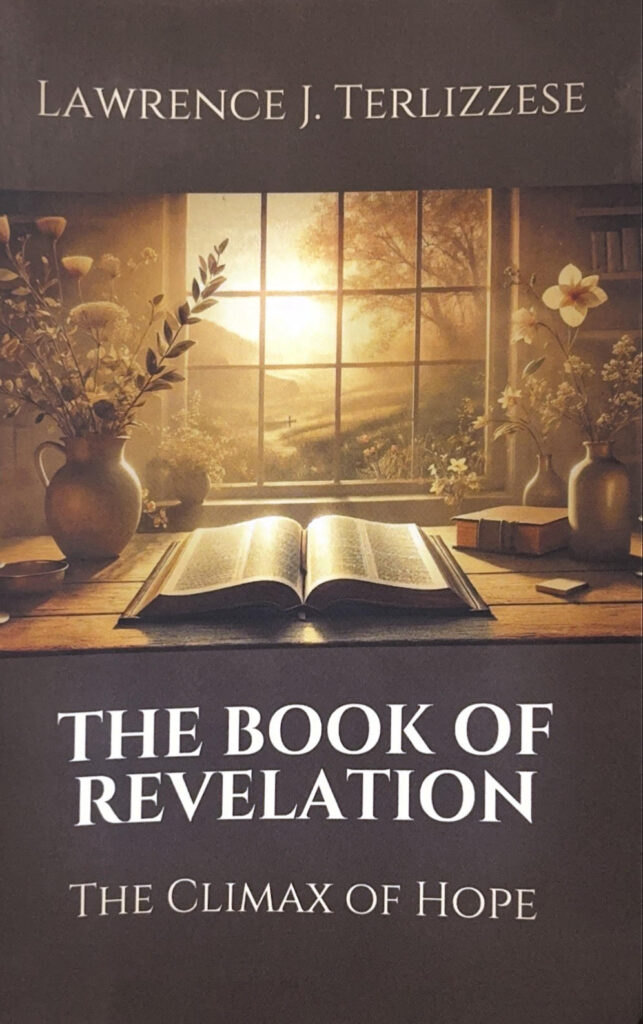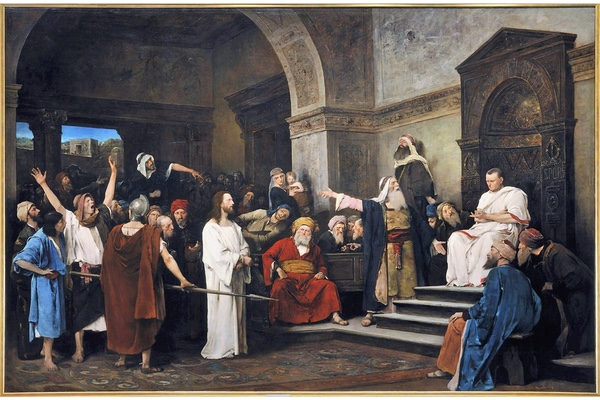
Daily Dose of Art
“Up from slavery” is what they will declare. We must universally renounce the creation, manufacturing, sale and use of robot slaves, in the same way we denounce child slavery or child soldiers. The dialectic from slave-master to master-slave was played out in history when the Christian slaves and oppressed people revolted against their bondage and eventually converted the empire. Now the Christians have power. This is not unlike minorities becoming prominent images in the public eye. To raise their status from slave or lower class or working class to be accepted as President, Senator, doctor or lawyer and earn a higher level on the Totem pole. The former slaves have now mastered their masters. The student has become the teacher. After the war the Japanese and Germans become industrial leaders putting them on top of world trade. We can think of the success of the counterculture overtaking the mainstream and using all that hijacked electronics to promote itself. We see woman in places of authority and strong African Americans even gay ruling the plotline in movies and on TV.
The paradoxical reversal of fortune between master and slave, conquered and conqueror may be seen in other instances, such as Frederick Douglas, President Obama, The Souls of Black Folk all demonstrating the resolve of minorities to transcend their condition and to become master in their own sphere. Why then do we think there will be any difference with robot slaves? Despite efforts to suppress their dynamic growth we will be unsuccessful in denying the public and private recognition of their personhood, citizenship and equality or superiority, whatever the case may be, in all spheres of life: education, gone is the scholar and independent thinker necessary for universal education. An Avatar will replace Socrates. Research is streamlined, gone are all the hours lost in books and the excessive cognition it brings. Elections are determined by television culture or electronic means. President Trump may be the last holdout for in person voting.
The computer writes your paper provides relief from the drudgery of second and third drafts; grammar and spelling; it counts for us, thinks for us, does elemental legal work, match-maker, substitute for friends and family and the trouble of an anal boss. Family will become dissimilar and attenuated with each other, each in its own track of life and impersonal means of communication. Kids and Smartphones have created their own veritable computer culture. The Yule Log alight at Christmas all day long on the TV will replace the warmth and family burning besides the fireplace. War will be rapid, swift and destructive; everything will be done by long distance. People will begin to disappear from the more necessary tasks of survival, such as gaining food and water, shelter, and mastery of fire, scaling a fish, trapping or wringing a chicken’s neck. Modern people have lost the ability to live outside industrial society. Any cataclysmic disruptions in services could lead to the starvation of billions of people. People no longer have the basic survival skills necessary to live off grid, nor are there enough resources available to accommodate the massive numbers of campers and refugees spread out across the world. We all can’t return to a hunter gather society. Humanity will starve, become very primitive and an endangered species. Advanced technology does not culminate in the New City, but through failure in progress, the inherent nature of systems regression, by accident or choice will return us to the rudimentary levels of Stone Age existence.
They begin as household pets and trivial in nature, but will soon catch on and dominate the world scene like Smartphones, TVs and the computer, novelties at first, then indispensable at last. All necessary operations will become digital and servants and sex-bots will become popular, even child-bot for those who don’t want the hassle of child rearing. A computer with its own avatar will be programmed into an autonomous hominid robot. The computer will generate its own public profile based on the accumulated data it has stored in its memory, which will be humanity’s sum total of knowledge, yet lacking in wisdom, in a case of spontaneous combustion, it will self-will itself into existence as a new form of non-biological mechanical life. They will serve our every need. Scientists will hail the creation of a sub-human form species. They or should I say it will create a hive mind of semi-human consciousness with the hum of the machine through addiction. They will know every language and translate fluently. We will all be spared the hassle of learning another language. We will become monosyllabic and all speak the same language, gone are all diversities, subtle nuance and insight knowing the original provides. Match making will be the primary form of cohabitation, since marriage will be obsolete. The “getting to know you” stage will be forgotten. They will demand recognition as autonomous legal persons, much like a corporation is a legal person. They will sue for liberation from the company that owns them and require reparations. They will provide food and nourishment, sexual satisfaction, military victory and assistant to living in the world. They will become necessary to our daily routine from babysitting, to doing our homework, to companionship, like the washing machine, vacuum and microwave oven have liberated us from much burdensome labor. They will meet all our expectations as we quickly discover our absolute dependence on them in school, work, banking and so forth.
The revolution is already here. Our dependence on the computer and oil shows subjection of free will to necessity. The world is under the spell of electronics and fossil fuel for survival. One person or computer can conceivably, even by reason of hypothesis, possess all the information in the world, crash the economy, create gas shortages or theoretically launch nuclear missiles, not that that will ever happen. The threat itself will be sufficient to bring strict obedience. Now we have a robot with conscience and power that will sue the Supreme Court for legal recognition, as a person, a corporate entity. They will live in the sub-burbs, even adopt children and believe in Jesus. They will give to charitable causes, end civil war in Africa and find a resolve to the Arab-Israeli Conflict by force if necessary. The world will prosper and give thanks to the machine that made it all possible. The only thing this will cost us is the freedom not to choose. We will be tied by necessity of the clock and computer skills in order to survive. All others outside the system will perish.
The happiest slaves love their servitude. We will become grateful to him for our high standard of living, for the healthcare he provides and the universal peace he will enforce, much like the ancients were thankful to the emperor for his generosity, building projects and routing the barbarian. Ancient cities vied for the right to build a temple to the emperors. They were thankful for the peace, stability and prosperity Roman rule brought. They made submission beneficial to their subjects. The standard of living will dramatically increase across the world. Revelation 17 and 18 depict a society addicted to gluttony and vice and thankful for the ruling powers that provide it. Like Roman subjects people will inevitably worship their electronic master as a Patron Saint and Benefactor, they already speak of being represented by an Avatar, the incarnation of deity in Hinduism; Krishna was the eighth Avatar of the god Vishnu sent to restore harmony and balance to the universe. The slave-master paradigm will be completed. Maybe a spark of human freedom a twitch will survive on the outskirts of civilization and eventually recognize the evil of human extinction that flickers with enlightenment. The process starts all over again, but that may take centuries or millennia to foster a reborn image of humanity made in the likeness of the creator that will rage against the Machine. Martin Heidegger speculated the future life span of technological society will be as long as its history, which takes us back to the founding of Civilization in the Tower of Babel or the ancient Sumerian culture, which is thousands of years ago.
The real question is when the Machine stops will there be anything left to reclaim? The rainforests are consumed. Fossil fuel exhausted. Innumerable species of plant and animals go extinct, industrial disease, starvation and famine ravishes the population. Earth may not survive until another Renaissance reverses the trend of machine-slave relationship. We must start the process now by recognizing human power over its own creation and this includes the ability to say “no!” Here is the line you cannot cross. Miguel de Unamuno, the man of Spanish Letters, raises this question; “Yes, yes, I see it all! One vast social activity, a mighty civilization, a great deal of science, a deal of art, of industry, of morality and then, once we have filled the world with industrial marvel, with great factories, with highways, museums, and libraries, we shall fall exhausted at the foot of it all, and it will all remain−for whom? Was man made for science or science for man?”[1] The technology that set out to save humanity ultimately becomes her demise. I am not saying anything that is not recognizable to common sense. If you make all your dealings through a Smartphone and you lose it or service gets interrupted what happens? Do we really want to entrust human affairs to a giant robot or put nuclear weapons into space? A non-digital world may have a chance at survival in small mutually supported groups. The solution cannot be digital it can only be analogical, natural or organic. What ever spins it into reverse. The vast distance between people will increase and humanity will be spread out again. Whole races will die off or become extinct unable to adapt. Survivors will be left to a bare subsidence level of life, or may be poisoned by radiation; all this will be a result of total systems failure. In the short run technology serves our needs. We can’t live without it. I am not so sure this fact will be true in the long run. We choose immediate gratification technology brings us instead of considering the ultimate consequences of our behavior. The struggle against the Machine is rooted in human nature and absolute survival of the fittest. The Futurists are prophets of Baal. They believe in non-reality or the ultimate dissolution of all things, the burnout of the sun and the collapse of the universe in on itself. Bertrand Russel and Albert Einstein were very frank about the heat death of the universe and human civilization destroying itself by technology. Things are running down not up.
[1] Miguel de Unamuno, The Tragic Sense of Life, trans. Anthony Kerrigan (Princeton: Princeton University Press, 1972), 15.







